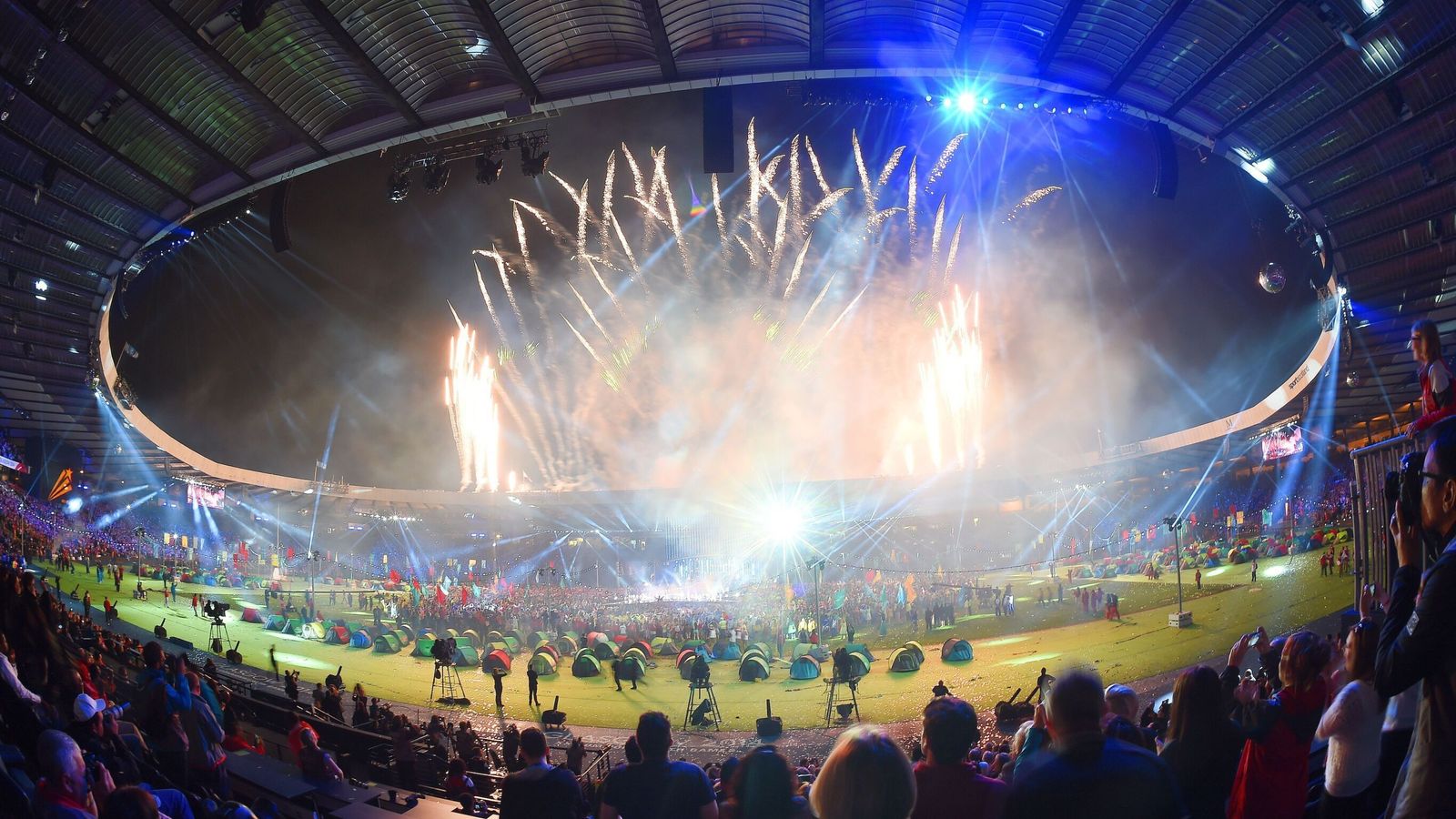Scotland’s Commonwealth Games body has developed a “cost-effective” way to host the troubled 2026 event in Glasgow amid continued uncertainty over its long-term future.
It commissioned a feasibility study in December after the Australian state of Victoria pulled out last summer.
Estimates suggest Scotland could run the event for between £130m and £150m – with the potential to bring more than £100m into the economy.
Existing sports facilities like the Emirates Arena would be used again instead of new builds, and competitors would be housed in local hotels rather than an athletes’ village.
The Commonwealth Games Federation (CGF) has said it will provide £100m for the chosen host nation, with the remaining budget funded by ticket sales and broadcasting rights.
The usual programme, however, would need to be cut down to between 10 and 13 events.
When Glasgow last hosted the games in 2014, 18 events were contested. In Birmingham in 2022, there were 20.
The Unknown from Willy’s Chocolate Experience scares London Dungeon visitors
Celtic donation helps Scotland’s national deaf team meet target to compete in Euros
Man appears in court over ‘sexual assault’ of woman, 70, near Bearsden park
A final decision on the host nation is due to be made by the CGF next month, with reports on Friday suggesting Glasgow could be a back-up option “should a viable alternative fail to materialise”.
Read more from Sky News:
How Scotland’s ferry fiasco became a national scandal
NASA urged to help in new search for Loch Ness monster
Keep up with all the latest news from the UK and around the world by following Sky News
Ian Reid, the chair of Commonwealth Games Scotland, said: “We know how important the Commonwealth Games is for athletes, sports and supporters, and we remain concerned about the impact the ongoing uncertainty around 2026 is having on everyone concerned.
“It is vital that a games takes place in this cycle, and we are hopeful that a positive outcome can be delivered through the CGF’s discussions with other nations.
“We also wanted to ensure that we had left no stone unturned in the search for solutions, should a viable alternative fail to materialise, but recognised the need for a model that did not rely on large public investment.
“Glasgow has a fantastic track record of delivering large sporting events within sensible budgets, with world-class facilities and expertise already in place as a legacy of the Glasgow 2014 Commonwealth Games a decade ago.
“We believe our concept provides the CGF with a viable, cost-effective and exciting solution which importantly won’t involve significant sums of public funding.”









